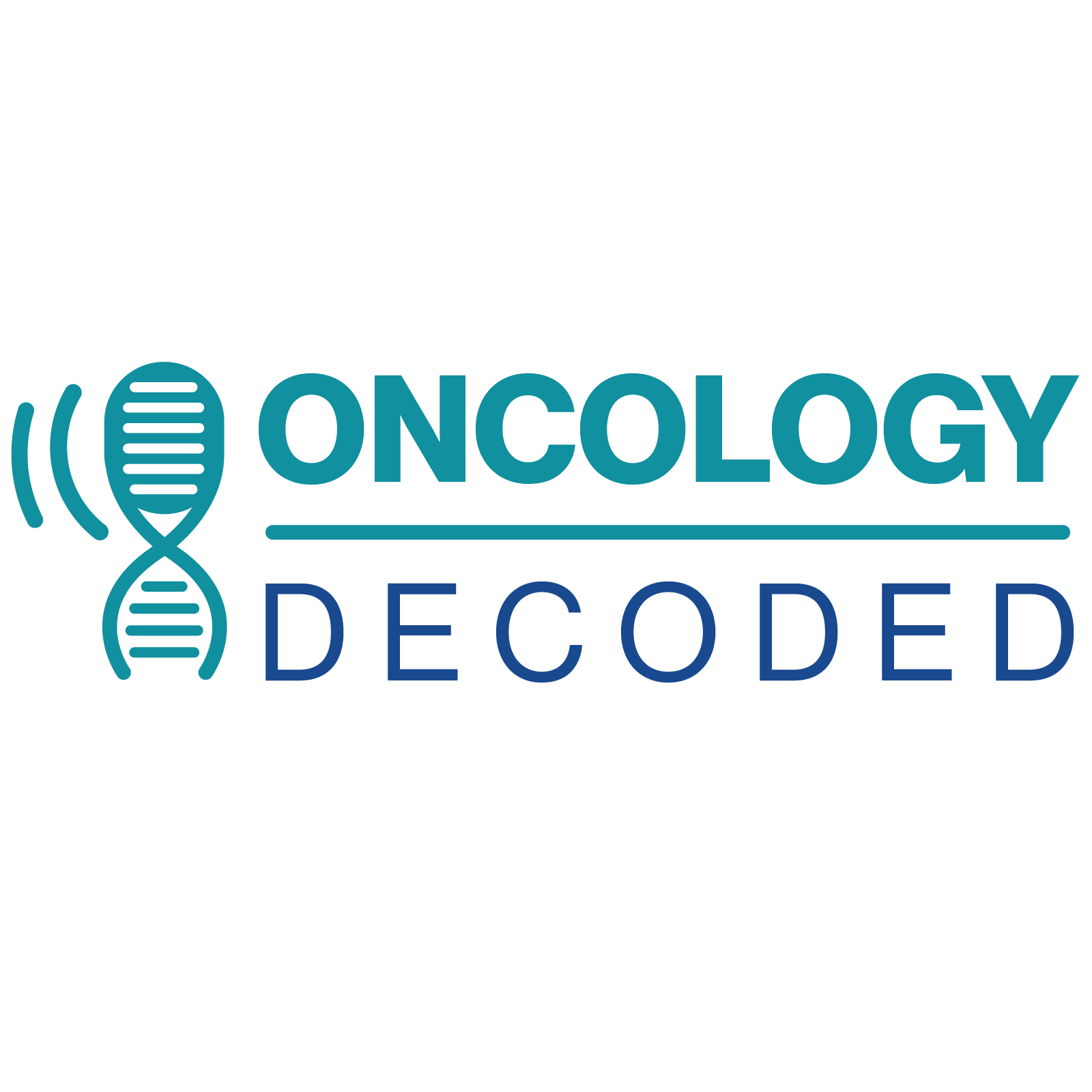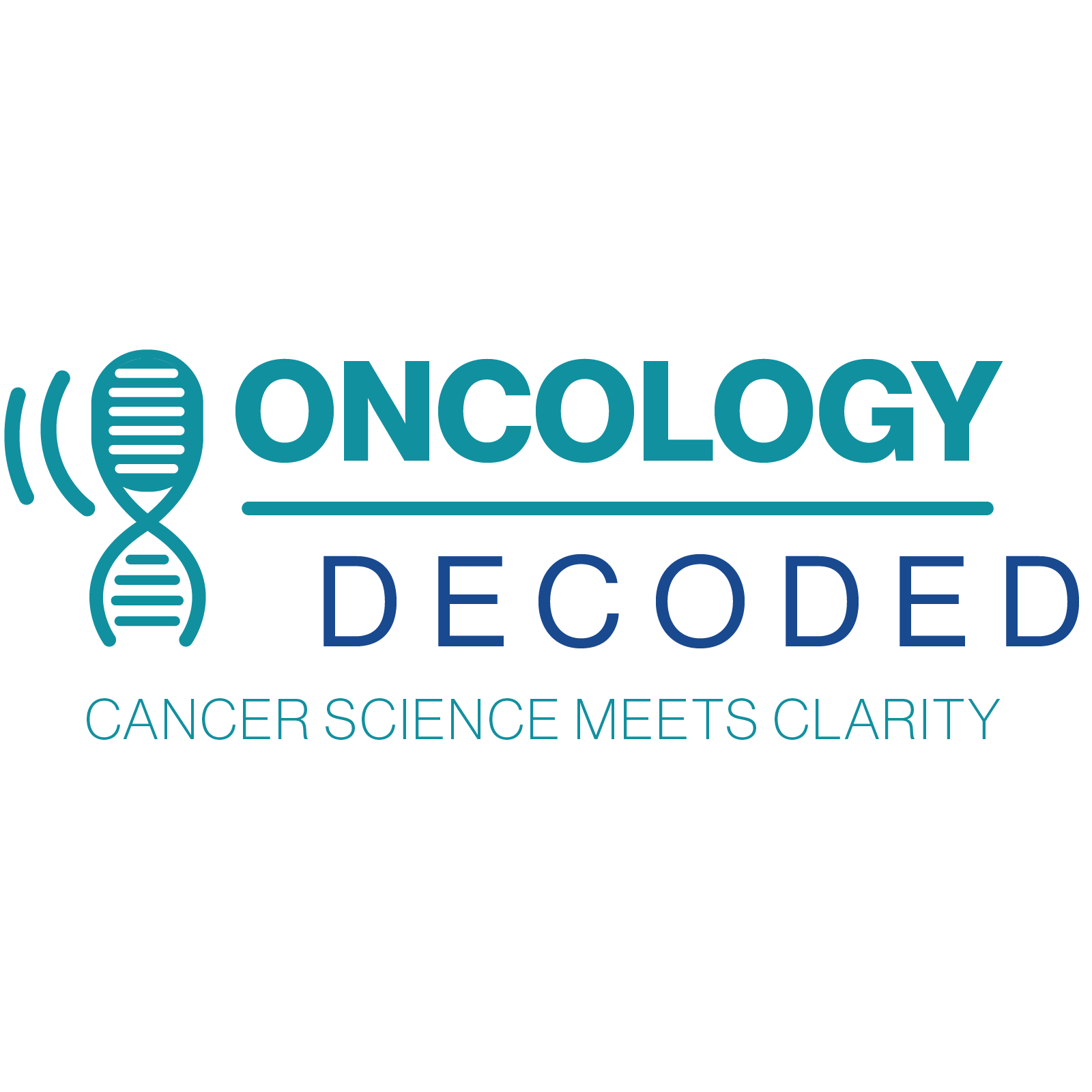Oncology Decoded

Oncology Decoded
Podcast Description
CancerNetwork® is excited to announce the launch of Oncology Decoded, a new podcast that will discuss scientific data and practical application in the world of oncology. Hosted by 2 leading experts in the field, Benjamin Garmezy, MD, and Manoj Bupathi, MD, MS, this podcast will cover cutting-edge topics and offer actionable insights to help improve patient outcomes.
Podcast Insights
Content Themes
The podcast covers pressing topics in oncology, including non-clear cell renal cell carcinoma, metastatic hormone-sensitive prostate cancer, and bladder cancer treatment options. Episodes feature detailed analyses of clinical trial data, case studies, and discussions on the latest treatment strategies, such as combining immunotherapy with targeted therapies and the critical role of personalized treatment approaches.

Bupathi is the executive cochair of the Genitourinary Cancer Research Executive Committee at Sarah Cannon Research Institute (SCRI) and a medical oncologist with Rocky Mountain Cancer Centers, specializing in solid tumors and genitourinary cancers. Garmezy is the associate director of genitourinary research and executive cochair of the Genitourinary Cancer Research Executive Committee at SCRI and a medical oncologist at SCRI Oncology Partners, specializing in genitourinary cancers. Together, they reviewed several key moments in kidney and bladder cancer research, including but not limited to:
· The FDA Approval of The EV-303 Trial (NCT03924895) Regimen
o In November 2025, the FDA approved a neoadjuvant/adjuvant regimen consisting of pembrolizumab (Keytruda) or pembrolizumab and berahyaluronidase alfa-pmph (Keytruda Qlex) plus enfortumab vedotin-ejfv (Padcev) for patients with muscle-invasive bladder cancer (MIBC) who are ineligible for cisplatin.
o “Incredible” data from the phase 3 KEYNOTE-905/EV-303 trial supported the approval, which showed an improvement in event-free survival with the enfortumab vedotin combination vs surgery alone (HR, 0.40; 95% CI, 0.28-0.57; P <.0001).
o The approval may lead to a “paradigm shift” in the treatment of this MIBC population.
· The Phase 3 POTOMAC Trial (NCT03528694)
o Data showed a meaningful disease-free survival (DFS) improvement when adding durvalumab (Imfinzi) to Bacillus Calmette-Guérin (BCG) among patients with BCG-naïve, high-risk NMIBC (HR, 0.68; 95% CI, 0.50-0.93; P = .0154).
o Frontline immunotherapy-based regimens may “complicate” how to think about treating patients with NMIBC later down the line.
· The Phase 3 RAMPART Trial (NCT03288532)
o Adjuvant treatment with durvalumab (Imfinzi) plus tremelimumab-actl (Imjudo) improved DFS compared with active monitoring among patients who underwent resection of primary renal cell carcinoma (RCC; HR, 0.65; 95% CI, 0.45-0.93; P = .0094).
o Following previous unsuccessful trials assessing immunotherapy in adjuvant RCC, the results of RAMPART demonstrate how immunotherapy can work in this space.
References
- FDA approves pembrolizumab with enfortumab vedotin-ejfv for muscle invasive bladder cancer. News release. FDA. November 21, 2025. Accessed January 5, 2026. https://tinyurl.com/bdfhmhnk
- De Santis M, Palou Redorta J, Nishiyama H, et al. Durvalumab in combination with BCG for BCG-naive, high-risk, non-muscle-invasive bladder cancer (POTOMAC): final analysis of a randomised, open-label, phase 3 trial. Lancet. 2025;406(10516):2221-2234. doi:10.1016/S0140-6736(25)01897-5
- Larkin J, Powles TB, Frangou E, et al. First results from RAMPART: An international phase III randomised-controlled trial of adjuvant durvalumab monotherapy or combined with tremelimumab for resected primary renal cell carcinoma (RCC) led by MRC CTU at UCL. Ann Oncol. 2025;36(suppl 2):S1750. doi:10.1016/j.annonc.2025.09.110

Disclaimer
This podcast’s information is provided for general reference and was obtained from publicly accessible sources. The Podcast Collaborative neither produces nor verifies the content, accuracy, or suitability of this podcast. Views and opinions belong solely to the podcast creators and guests.
For a complete disclaimer, please see our Full Disclaimer on the archive page. The Podcast Collaborative bears no responsibility for the podcast’s themes, language, or overall content. Listener discretion is advised. Read our Terms of Use and Privacy Policy for more details.